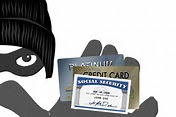How to protect your identity is one of the most important questions that you can be asking yourself. Last year, approximately 14 million people were victims of identity theft. There are so many things to know about this topic. Most of us are aware that there are big time identity criminals out there, especially those using automated processes on the internet. Additionally, though, there are small time, opportunistic identity thieves who are just waiting for you to drop your wallet or leave your ATM card in the automatic teller. Perhaps most surprisingly, about a third of people who have their identities stolen are victims of friends or family who have easy access to valuable personal information. Children can be surprising, but especially attractive targets for these last kinds of thieves because their records appear "clean".
You may be asking, "How can I protect my identity?" when there are so many cases of theft every year, and so many types of identity criminals. Some of the first steps are really simple. Keep your important personal documents such as your social security card, birth certificate and passport locked up so that they are not easily accessible to opportunistic criminals who may or may not be friends of family members.
It is also important that you know how to protect your identity on a larger scale. This might mean keeping track of your credit score and periodically ordering copies of your credit report. But, did you know, there are three major credit reporting bureaus that keep track of this information? It would take a lot of time to continually monitor those scores and review those reports.
If you are wondering how to more efficiently protect from identity theft, you are probably a good candidate for Identity Guard®. Identity Guard provides ongoing monitoring of not only your credit reports, but of your identity by looking for any certain activity of your valuable personal information. With Identity Guard, you will receive not only quarterly credit scores and reports from the three major bureaus, but ongoing alerts whenever certain activities are detected. These reports and timely alerts may help you to take action to protect your identity before the damage escalates to something that could take months of your time and hundreds of dollars to correct.






